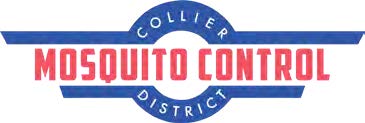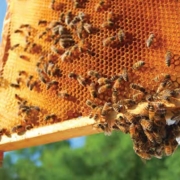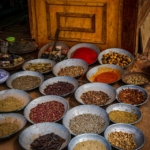Protecting the Pollinators

Patrick Linn, MS, MSHAPI
Executive Director, Collier Mosquito Control District
Employees working to meet the mission of the Collier Mosquito Control District are acutely aware of the vital role pollinating insects play in an ecologically healthy community. In order to maximize mosquito control and exert minimal negative impact on pollinators and beneficial insects, the District adheres to the industry’s best practices when applying mosquito control products.
The success of any integrated mosquito management program requires application not only of control products, but of the knowledge and relationships between biology, ecology, and more. The time of day we treat with adulticides (to control adult mosquitoes) is an excellent example. Mosquitoes are most active during crepuscular periods (twilight hours of dawn and dusk). Pollinators tend to be out-and-about during daytime hours. An effective means of minimizing “non-target” impacts is to use adulticides before dawn and after dusk.
The nighttime hours also tend to move humans indoors. The reasoning behind the timing, method, and products used is quite complex, but well understood. The District seeks to pose an absolute minimum of risk to beneficial insects, humans, pets, and livestock. Thus, great care is taken in planning aerial missions. An exception to aerial missions occurs when the District applies granular larvicides via helicopter. These products are 100 percent mosquito larvae specific, and in order to maintain safety of flight while dispersing the product, daylight is necessary.
Extensive studies on the effect of nighttime Ultra Low Volume (ULV) adult mosquito control applications on non-target insects in the United States show no evidence of material risk to pollinator
health. The combination of timing, altitude of dispersal, droplet size, and product type all contribute to a mosquito-specific control effort. Further, the materials used by the District to control adult
mosquitoes do not persist in the atmosphere or settle on surfaces. They degrade rapidly with time, sunlight, and the atmospheric changes associated with daytime hours. The application of larvicides with the intent of having the product linger on surfaces or in water is mosquito larvae-specific and not harmful to nontarget organisms.
Many years ago, the District developed an automated notification system that can alert enrolled residents of mosquito control treatments in areas including their home address. Our county’s apiarists eagerly adopted the use of the system, and those with concerns about their hives could verify that their bees were inside the hives at night. You too can register to receive these alerts using the form on our website: www.cmcd.org/spray_maps/?notify
Occasionally a hobbyist beekeeper whose hive suffers the loss of inhabitants may contact us with concerns that our treatment(s) may have caused their loss. The District works with these beekeepers to rule out any exposure to mosquito control materials. To further investigate the cause, we encourage the apiarist to contact the Florida Department of Agriculture and Consumer Services for an inspection (the inspector for Collier County is close by in LaBelle). All beekeepers in Florida are required by law to register their hives with the agency, and their investigators help determine the hives are free from pests, viruses, and unwanted types of honeybees. Further, owners may elect to work with the agency to have the dead bees tested for pesticide exposure.
Until Irma swept through Southwest Florida in 2017, we enjoyed hosting two hives on our District campus from a local hobbyist. The apiarist tended the hives and graciously shared the delicious honey with our staff. Unfortunately, the storm wiped out the bees’ structures and the owner relocated the colonies to his property.
The Collier Mosquito Control District is committed to the health and well-being of the community we serve, including the beneficial insects who call Collier home. If you wish to learn more about the extensive research into this topic, please visit www.mosquito.org/page/pollinators.

During the COVID-19 pandemic, our campus is closed to visitors as we strictly adhere to guidelines established by the Centers for Disease Control.
However, we are available for presentations to civic groups, homeowner associations, and community upon request. Please contact us at 239.436.1000.




Leave a Reply
Want to join the discussion?Feel free to contribute!